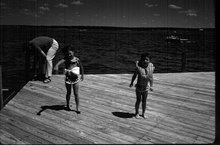
Sudek, Shell and Eyeball Arrangement, 1956
The writing of this is even itself a collection of words insisting on inconsummate desire. A desire to communicate the vast reaches of unmanifest passion: the passion for the grandfather, the dual passion for poetry (of words and image), and for a man who offered a seed instead of a stone. (fragment excised from original manuscript)
“Our lives submit to archaeology.”--John Updike
I have been searching for a missing folder for months. In one of the many recent moves, it disappeared, although I can distinctly see myself placing it safely somewhere, thinking, here it will be safe. The worn out, ratty tab of the folder says “Poetry” in stained blue ballpoint, and it contains a handful of poems (which I always call Ten Poems, despite the fact that I have no idea how many there are) culled from what once were hundreds.
Occasionally I will come across a decent poem inscribed in one of my journals, the few also that remain out of hundreds. After years of performing a ritual excavation into the years that are past, I will suddenly be seized with the perverse idea that I could actually just let the past go like a balloon, and I hurl them all into the garbage. I insist on romanticizing the notion of a certain garbage collector who rescues them, buys a moderate wine, and sits down to a night of investigation into this woman who threw herself away. About halfway through he realizes that, like her grocery lists, which she insists on filling out in neat, tidy letters every week in the order the items appear as she carves her path through the store, it is exactly the same, day after day, year after year--not the minute details, but the sweeping existential themes. In writing Sudek, and the girl with the magical shoes, I am equally invested in this task of trying to piece together a sense of who this woman is who lives in this skin from the evidence that has been carelessly left behind.
I find the poetry folder, and am struck by two things: that the degree of passion (for lovers, for my children, for nature) is matched only by the degree of despair. One poem is entitled the Suicide Decalogues, which was intended as a catalogue of moments of utter despair over the course of ten years. I have made it through that ten years. I am still here, not broken, but haunted by the touching way we struggle (together, all of us) toward apprehension of the "terrible relentless beauty of the spring."
Dialect No. 1
from now on
this will be the only language
I speak:
in syllables of flesh,
a dialect of limbs
as a child I searched the vowels
seeking the familiar
sound of fingers on skin,
the rustling of feet in tall grass--
my family spoke only
stomach glass.
in class we carved the phrases
into arms and legs
dangling in air, dis-membered,
and in this way I have learned to cut away
the extraneous
appendage,
to name it.
in the dialect of limbs
we speak of ourselves
as extremities
knowing (that at any moment)
we may be severed
but life goes on…
we break
we break
we mend.
(December 2005)



